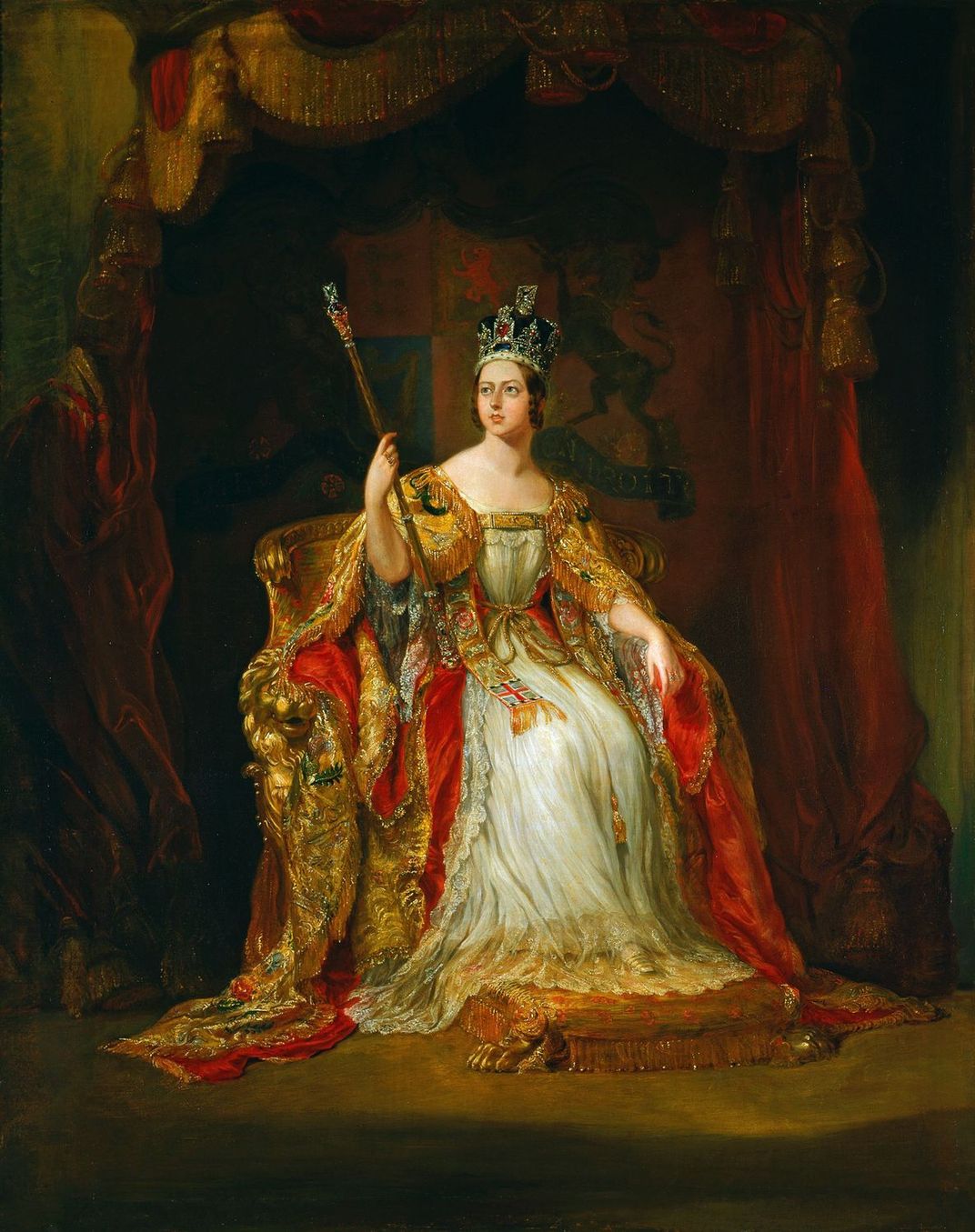Americans Caught ‘Victoria Fever’ For The British Queen’s 1838 Coronation
Such delicacies as ‘Victoria soap’ could be bought in America as a souvenir of the occasion
/https://tf-cmsv2-smithsonianmag-media.s3.amazonaws.com/filer/13/53/1353a109-4f67-4a2a-b779-2b2859807761/coronation_of_queen_victoria_28_june_1838_by_sir_george_hayter.jpg)
Nineteenth-century Americans were just as interested in the British royals as their counterparts today.
Nearly 23 million Americans tuned in to watch Prince William’s 2011 wedding to Catherine Middleton on television, reported Brian Stelter for The New York Times–even though Britain is hours ahead of the United States, meaning many of those people had to get up very, very early. But royal-watching is nothing new. Although they didn’t have televisions yet, many Americans also united around Queen Victoria’s coronation, which happened on this day in 1838.
The United States Magazine and Democratic Review, an influential political and literary magazine, disparagingly termed it “Victoria Fever,” an anti-republican “Queen-mania” that started before the coronation and continued after. An anonymous letter writer going by A.D.F., described the physical trappings of the sickness: in Philadelphia, the writer found souvenir hairbrushes with Victoria’s picture on them, “Victoria soap, composed expressly for the coronation” and “Victoria riding hats,” among other things. In fact, A.D.F. wrote, by the time he left Philadelphia he had seen so much evidence of the new Queen’s influence that he suggested changing the city’s name to “Victoria-delphia.”
But it wasn’t just Philadelphia. Victoria Fever had spread across the nation. Sparked in part by the coronation–which was an event of such popular interest that The Saturday Evening Post devoted several articles to it–Americans became infatuated with the young queen. The most complete account of the coronation, published July 28 1838, devoted almost 2,500 words to describing the pageantry of the event, going as far as listing the quantity, type and estimated value of jewels and pearls in the royal crown. A second account published in early August “covered four columns of a large… page with very small type,” writes Jeff Nilsson for the Saturday Evening Post. “It would have satisfied anyone’s appetite for news of the event.”

Other writers also profited from the coronation: a popular pseudonymous children’s author, Peter Parley, wrote an account of his trip across the Atlantic for the coronation, and it was widely reported in newspapers.
Victoria Fever also spread as high as America’s highest office. President Andrew Jackson, who had corresponded with Princess Victoria and her mother during his time in office, “perused with intense interest reports about her coronation, her marriage and her children,” write historians Fred Leventhal and Roland Quinault. Jackson was not president during the coronation itself (he left office a year earlier), but he regarded the young queen as “a personal protégée, his ‘little good friend,’” the historians write.
Martin Van Buren was president at the time of Victoria's coronation and received a letter from the new Queen which she signed "Your good friend, Victoria R." All in all, Victoria ruled during the reign of 17 American presidents–the last being William McKinley.
Only 55 years earlier, the United States won control from the British crown. The War of 1812 had happened about 25 years before. Why were Americans so interested in the ruler of a country they had so recently fought?
Even though conflict had taken place, write Leventhal and Quinault, the two countries had strong parallels that kept them together. “By the 1820s there was an unprecedented human, material and cultural traffic between the two countries that was to mushroom even further during the Victorian period,” they write. “Britons debated the ‘Americanization of their country, while Americans experienced ‘Victorianization’ in the form of railroads, cotton and literature.”
Try though they might, the two countries couldn’t separate fully. Might as well enjoy the spectacle.